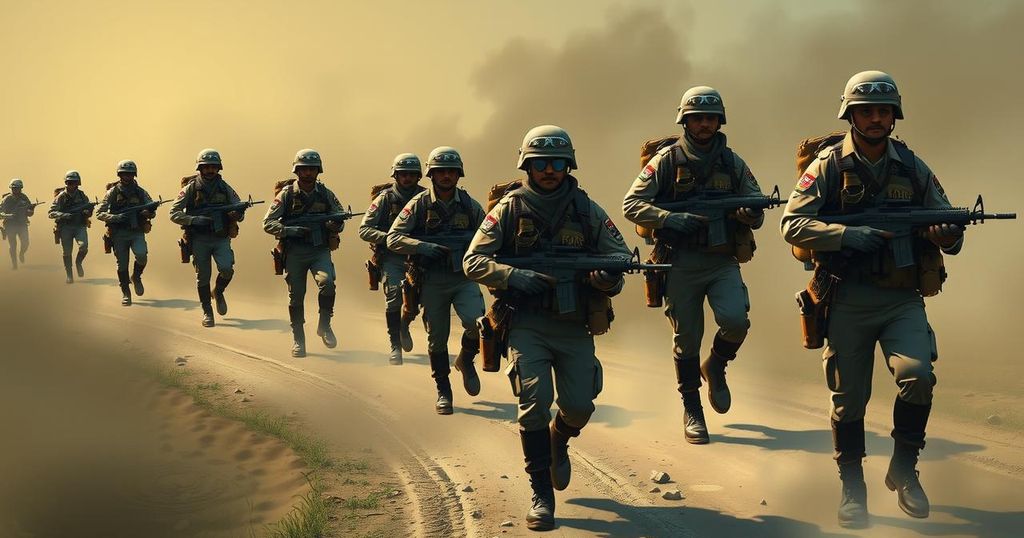The Arakan Army’s ascendance in Myanmar’s civil war has altered the security landscape in Rakhine province, raising concerns of increased Rohingya migration to Bangladesh. The situation threatens regional stability and poses challenges for India, which is focused on maintaining security amidst rising tensions and drug trafficking linked to the conflict. India’s strategic engagement with both the Arakan Army and the military junta is essential for its interests, particularly regarding the Kaladan project amidst rising Chinese influence.
In the ongoing civil war engulfing Myanmar, the Arakan Army, which is the largest ethnic rebel group, has successfully seized extensive territories in Rakhine province. Following the military coup in 2021 that overthrew the democratically elected government, the junta has struggled to maintain control, leading to significant security transformations along the Myanmar-Bangladesh border. This upheaval raises concerns of a renewed influx of Rohingya refugees fleeing violence and instability.
Amid widespread international neglect of Myanmar’s conflict, its implications extend beyond borders, particularly impacting India. Ethnic groups like the Arakan Army continue to fight the military for autonomy and resource control, having aligned with others in the Three Brotherhood Alliance. Recent military successes, including taking significant township territories and military installations, raise questions about their future strategies and goals.
Notably, the Arakan Army is suspected of branching into border areas within Bangladesh, posing risks of confrontation with the Bangladeshi military, thereby intensifying an already precarious security environment. Furthermore, while it initially appears that the Arakan Army is focusing on gaining support from the Rohingya, historical tensions indicate a complex and often violent relationship between the two communities.
India maintains a cautious approach to Myanmar, balancing its national security interests against the backdrop of its challenges in the northeastern region. Concerns about advanced weaponry potentially reaching insurgents in India and increasing drug trafficking have prompted stricter border controls.
Moreover, China’s engagement in Myanmar complicates the situation, as it seeks to leverage the conflict to enhance its strategic foothold, particularly through initiatives like the Belt and Road Initiative, which includes critical economic corridors benefiting Chinese interests. Consequently, India is compelled to establish dialogue with both the Arakan Army and the military junta to safeguard its geopolitical aspirations, notably in the context of infrastructure projects like the Kaladan project critical for linking India to Southeast Asia.
The civil conflict in Myanmar escalated significantly after the military coup in February 2021, leading to widespread unrest and battles among various ethnic armed organizations against the junta. The Arakan Army, representing the interests of the Arakanese people in Rakhine State, has emerged as a formidable force, seizing territory and disrupting the status quo. The dynamics between Myanmar’s military, ethnic rebels, and their international neighbors, particularly Bangladesh and India, highlight the complex interplay of regional stability, humanitarian crises, and geopolitical interests.
In conclusion, the rise of the Arakan Army amidst the Myanmar conflict represents not only a shift in power dynamics within the country but also poses significant regional challenges that impact Bangladesh and India. India’s response, characterized by a dual-engagement strategy with both the military and the rebel groups, underscores a strategic imperative to maintain regional stability while protecting its own borders from potential fallout stemming from Myanmar’s turmoil. Continued vigilance and diplomatic efforts will be critical in addressing these multifaceted issues as they evolve.
Original Source: www.ndtv.com






